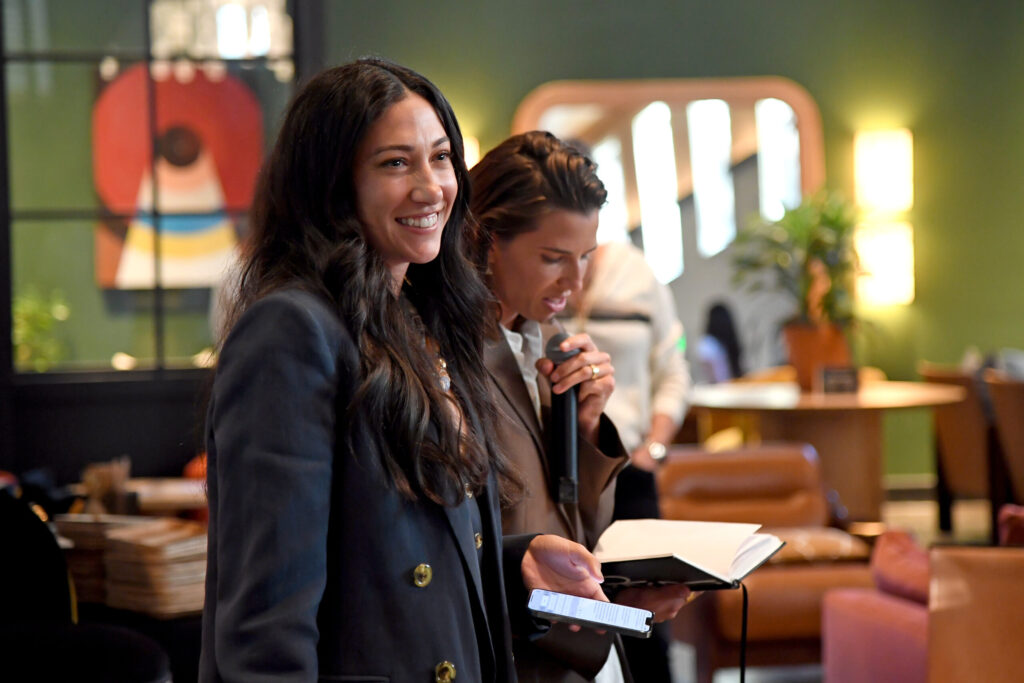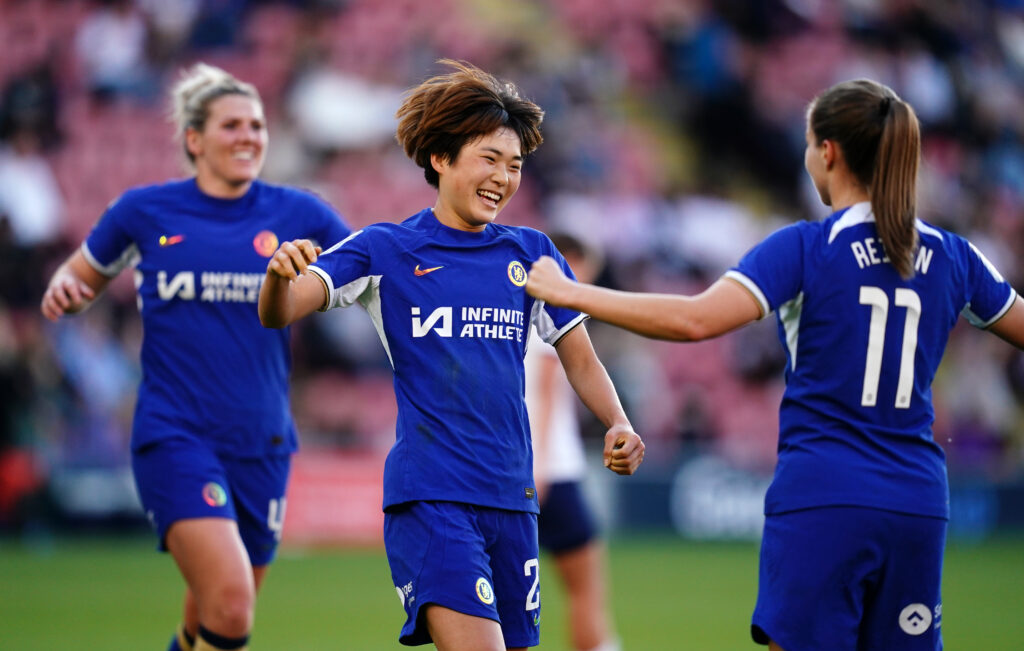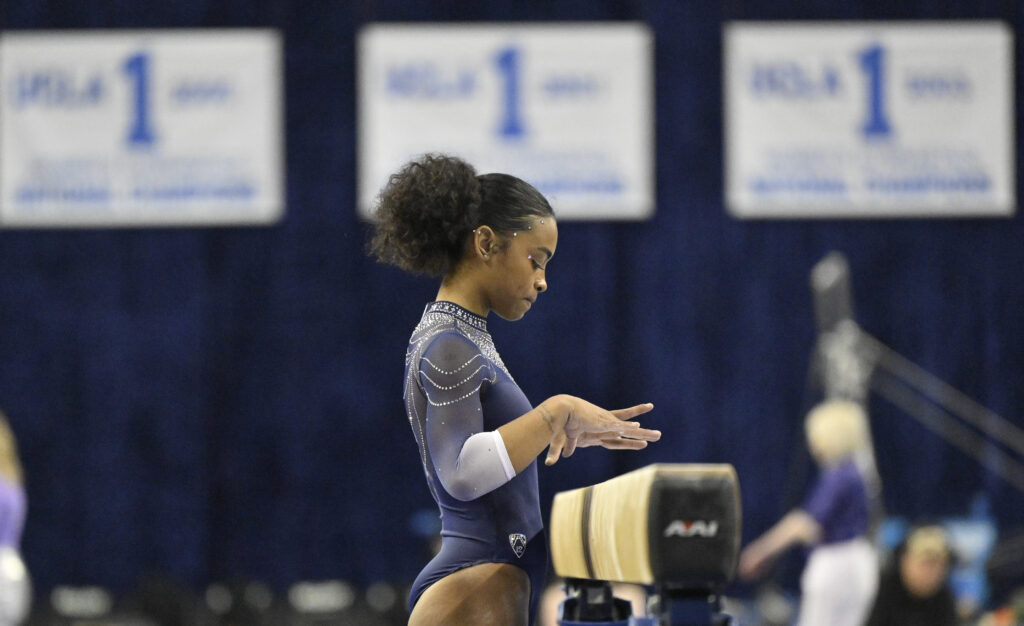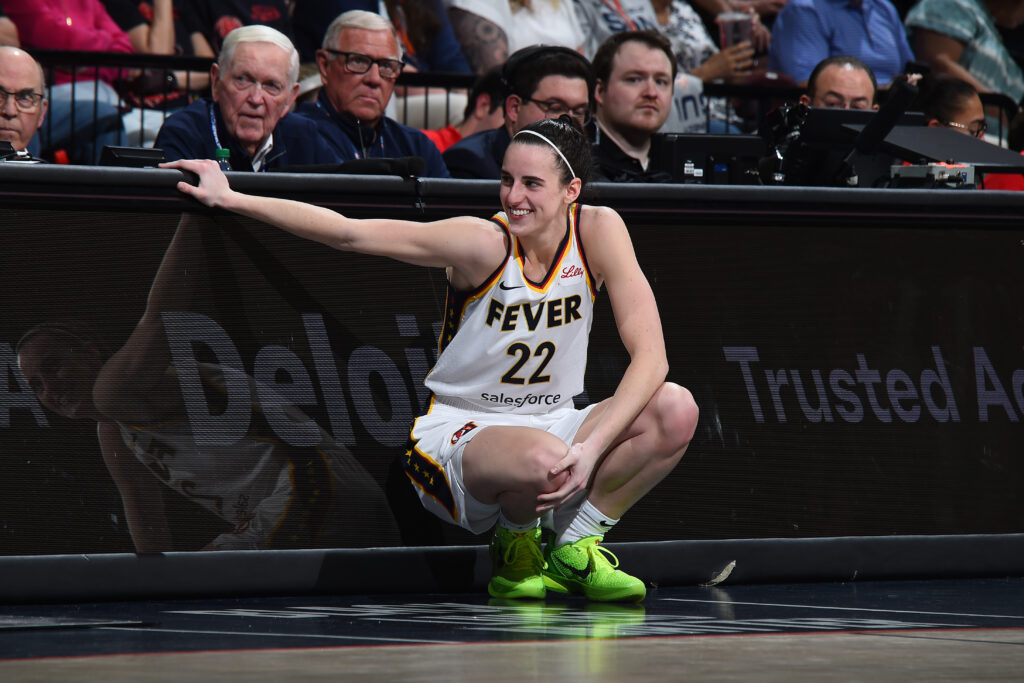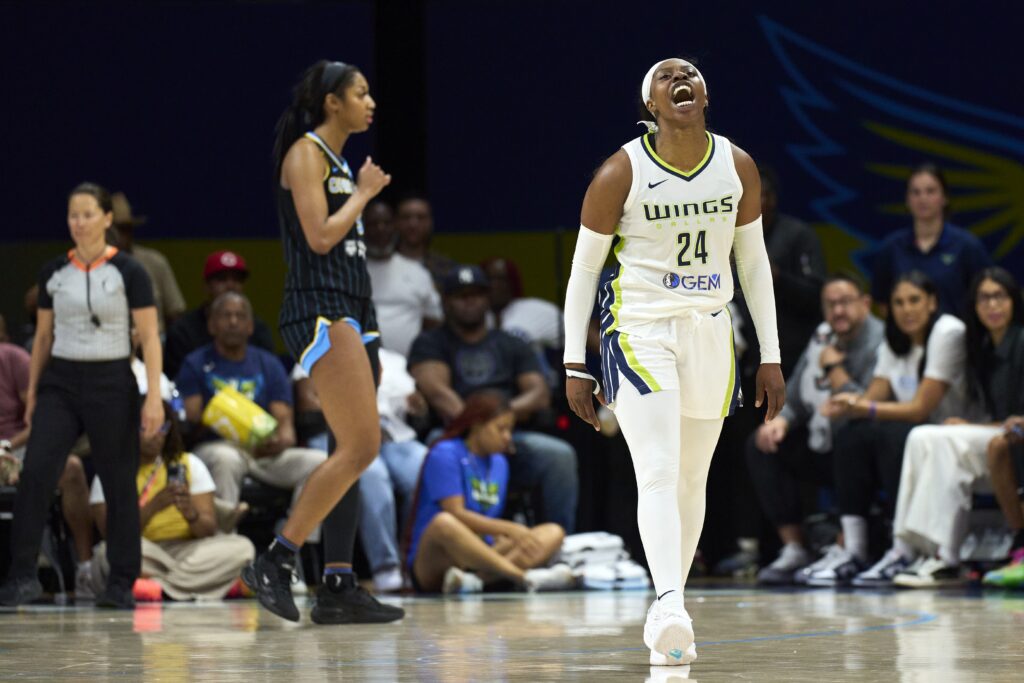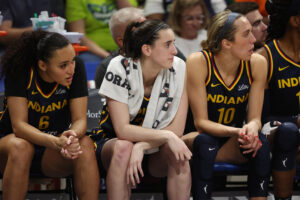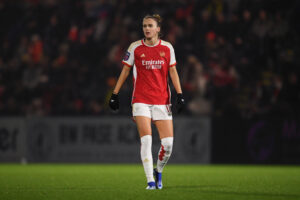Christen Press still has so much that she wants to do. The two-time World Cup champion with the U.S. women’s national team is on the road to recovery from an ACL injury that has sidelined her for over a year, but while working her way back to the pitch, she’s been anything but idle.
On Wednesday morning, the Angel City forward announced a new partnership with Degree as part of the company’s Change the Field program, which is “working to create safe and inclusive environments for girls of color on and off the field with the ‘Girls Can’ module series,” per a release. It’s a cause close to Press’ heart, she says, as a woman of color in a sport where girls of color are two times more likely to drop out of soccer than girls who are white and live in the suburbs.
“I grew up in an incredible place of privilege,” Press tells Just Women’s Sports, noting that her parents had the ability to fully support her soccer ambitions. “But I feel like I deeply understand the impact of racism and how that impacted myself and my family and being welcomed into spaces, including my own community that was predominantly white.”
Press played youth soccer in Orange County, which she describes as that kind of predominantly white environment that can be isolating for a girl of color playing the sport she loves.
“One thing that my parents taught me at a really young age, through their own action, was how to use that privilege to create change,” she says.
Press says her parents sponsored inner-city girls to join her club teams throughout her career, resulting in rosters that were more diverse and inclusive than the norm.
She now wants to help pass that experience onto the next generation, including the lesson that with privilege comes responsibility. Press notes that the common pay-to-play structure of elite youth soccer in the U.S. is prohibitive to a wide swath of talent, denying girls of color what she considers to be a vital outlet.
“I think when it comes to opportunity, it always boils down to me (as) hope,” she says. “And when you really have an environment, a structure and a society that is limiting to people based on their identity, based on their socioeconomic status, what you get taken is the hope. This idea that you can get out, that you can create change, that you are valuable, that gets taken by the infrastructure.”
That’s where the visibility of international athletes who reflect diversity and inclusion can be so important, as well as breaking down the socioeconomic barriers that exist between girls and their ability to participate in soccer at a high level. And it should surprise no one who is familiar with Press’ ambitions that she’s thinking even bigger.
“The second thing is reimagining the business of sport,” she says. “I think it’s essential that we look at putting women and people of color in leadership positions — that’s owning teams, that’s sitting on boards, that’s owning media divisions, being true decision-makers in women’s sports. And that’s how you’re going to see change.”
Press is leading the charge herself, recently taking the time away from active playing status to dive into women’s sports media through RE-INC, the company she founded alongside Tobin Heath, Megan Rapinoe and Meghan Klingenberg. She and Heath are both recovering from knee surgeries that have kept them off the field for the USWNT and their NWSL club teams for an extended period of time.
During the World Cup, they have been hosting “The RE-CAP Show” on YouTube, providing crucial insights both from a USWNT perspective and from years spent playing club soccer across the globe.

Press and Heath have welcomed guests from the NWSL and USWNT systems, as well as friends like Sweden’s Kosovare Asllani, The Netherlands’ Vivianne Miedema, and England’s Leah Williamson to offer a refreshing look inside international women’s soccer. Press describes the show as a labor of love, and credits her and Heath’s total creative control as the driving force behind her comfort level in front of the camera.
“I don’t think there has been any time where I felt like I had to be a certain way,” she says. “There’s like an ease in front of the camera that I would not have if I wasn’t, you know, producing the show.”
RE-INC would like to pivot the success of “The RE-CAP Show” into a media division of the larger company, with the hope of providing more voices with that same creative space where they can tell their own stories and not shy away from difficult conversations.
“There’s a missing element that we all collectively can fill through beautiful storytelling, and through honesty, and through authenticity,” says Press.
The USWNT’s disappointing World Cup campaign — their Round of 16 loss marked the earliest exit in team history — quickly transitioned into the loudest voices in the media space getting to dictate the conversation surrounding the team. Press and Heath sought to provide a compelling counter-narrative that came from earned experience.
“There’s just something that happens when you get filtered through someone else’s lens,” Press says. “Like a big broadcast agenda, (or) a partnership that doesn’t align with what you truly are.”
That gap also doesn’t always give real insight into what players are experiencing, and Press knows well that it does not fool the USWNT’s avid soccer fanbase.
“I swear anytime I hear something that is in the fan rumor mill, it’s always true, like the fans know what’s going on,” she says with a laugh. “And there is this, like, intimacy between our audience and us. And that has just been the way that it is because we’re accessible.”
Tobin and Christen react to USA losing to Sweden and have conversations with Dawn Scott and Kosovare Asllani ⚽️. This episode of The RE—CAP Show will get you right in the heart, find it anywhere you get your podcasts or watch at https://t.co/Qwtu12sHf8 pic.twitter.com/rgZAHrvZUA
— re—inc (@re__inc) August 7, 2023
“The RE-CAP Show” is about amplifying those connection points, as Press puts it.
“I think that through our show, we’re able to just put words to our why’s,” she continues. “Why we’re doing the things we’re doing, why it matters, and I think that’s just important for people to hear because it’s already felt, it’s already real. Like the community has been there and they’ve been asking for this, and they’ve been fighting for change alongside us.”
While she’s been participating in this year’s World Cup as a media voice rather than a participant, Press is still locked in on the bigger picture. She has hundreds of takeaways from what she’s seen on the international stage this year: Support at the federation level is inconsistent, but gains at the club level worldwide have ushered in a new level of global parity, and the next generation appears ready to pick up the reins.
“We’ve seen some super young talent be fantastic in this tournament,” she says. “We’ve seen a lot of first goals, first qualifications, first wins, and that’s so exciting. It’s been surprising. We saw world powers fall out far before any of us would have ever predicted, and yet in the semifinal you’ve got a lot of familiar faces and top-six teams and a host country.”
Whatever she does next, Press hopes that the legacy of her generation of players will not carry the same burdens, whether for equal pay or basic levels of professionalism and safety.

One of the topics Press has spoken freely about on “The RE-CAP Show” is the feeling of expendability she and her contemporaries struggled with in the NWSL and USWNT, with very little power to control their careers in toxic environments. Press played a key role in the eventual investigation into Rory Dames’ behavior while he was coach of the Chicago Red Stars, filing a formal complaint with U.S. Soccer in 2018. Dames was eventually pushed to resign in 2021 amid allegations of emotional and verbal abuse, and was officially banned from the NWSL in the wake of formal investigation findings in early 2023.
If Press has her way, the experiences she’s had as a player will never even cross the mind of the next generation of stars, like 18-year-old Alyssa Thompson, the youngest player on the USWNT’s World Cup roster.
“I hope that the next generation of player is unburdened,” she says. “I hope that the fight that we have had, that we are having is lesser, that it’s lighter, that it’s possible for a player to just be a professional player and they don’t have to be ‘and’ something else. They don’t have to, ‘and fight to get paid,’ ‘and be’ all these other things that were required of us.
“I think if that’s true for Alyssa Thompson, and she gets to grow up and be a pro and get paid and never have to worry about that, that would be a sign of huge success.”
Claire Watkins is a Staff Writer at Just Women’s Sports. Follow her on Twitter @ScoutRipley.
